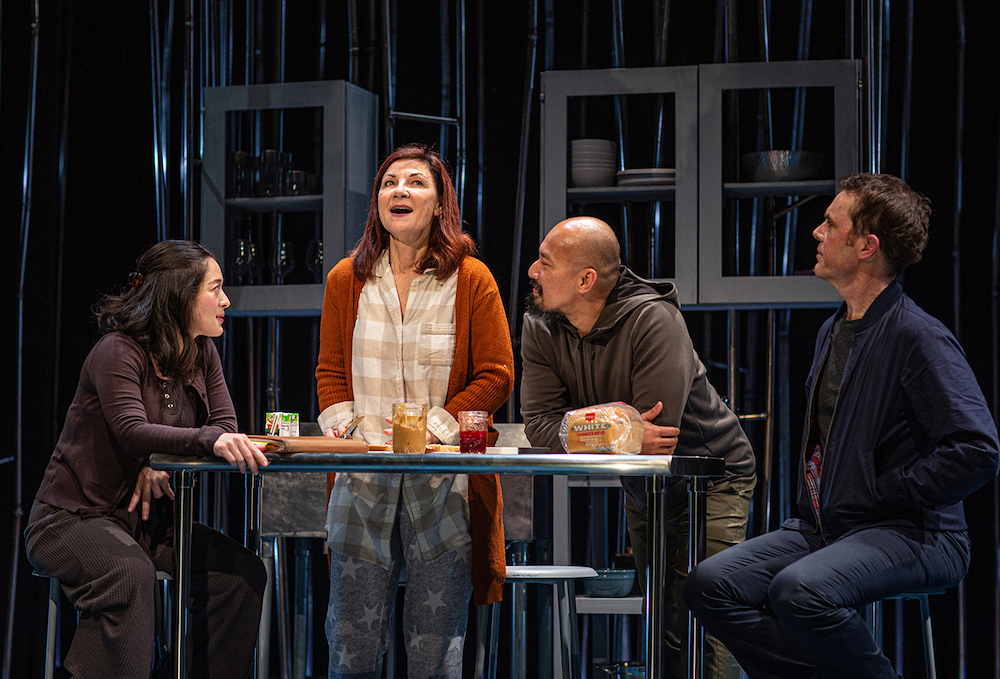Tops among those things the internet has changed is how we communicate with each other. Social media, blogs, even venerable papers with long histories of print have made their way to the digital realm. Users form a public with more democratic potential, and the public is no longer local. Even more, we can tell our stories and share our ideas and feelings without editorial constraints of time, space and propriety. We tell our stories as long as we want and about whatever we want and to whoever will listen.
From 2010 to 2012 novelist Cheryl Strayed wrote an advice column for the literary website The Rumpus. She later published those letters and her replies in a book titled Tiny Beautiful Things: Advice on Love and Life from Dear Sugar. The book debuted as number 5 on the New York Times Best Seller list in 2012 and has been published internationally. In 2017 it was skillfully adapted and premiered as a play by Nia Vardalos with Thomas Kail and Marshall Heyman. Vardalos premiered in the role of Sugar.

Tiny Beautiful Things opened at San Francisco Playhouse this past week in a wonderful production directed by Bill English. Susi Damilano portrays the Strayed/ Vardalos role, and Mark Anderson Phillips, Kina Kantor and Jomar Tagatac take the roles of the various and very many email writers who ask Sugar for advice. It’s a deft play, deftly produced by one of San Francisco’s best small houses.
The play opens with a pajama-clad Sugar wandering through a kitchen-like space to the fridge where she finds a bottle of white wine. Pouring herself a glass, she opens the laptop sitting on the kitchen table. Ping, she’s got email. A colleague is offering her his old job of writing an advice column for an online site … unpaid and under the byline of Sugar. Nah, she thinks, I’m too busy, but yeah, she types, she’ll take it. Send me the letters, she types, and seconds later, ping after ping after ping cascades into her email.
The letters she gets are not about what to wear to the wedding, or why the in-laws aren’t calling, or even why won’t my boyfriend answer my messages. And for the most part, they are not short, not 100-word précis that are answered in a column inch. Sure, there are the quick sentence-long problems that are injected for changes of pace in the dialog, clustered in groups about marriage, or parents, or relationships, or whatever. No, for the most part these email writers tell full-out life stories. And their stories are of people struggling with grief over the worst moments in human lives … over miscarriage, failed marriages, estranged parents, rape and the death of children.
We love to listen to stories, and this play is rife with them. But what also happened in these advice exchanges is another characteristic of our new form of social interaction. Because it allows candor, the internet gives us a sense of intimacy with those we have never seen, and may never see, much less have met or shared gossip with over a cup of coffee.
Immediately, the advice columnist’s readers know this Sugar is not the old Sugar. Who are you? they ask, one by one. It’s a question resonant throughout their exchanges. Who are you?
Sugar answers them with what she calls “radical sincerity,” which entails telling her reader the worst moments in her own life, of how she failed and then continued on, still struggling but somehow better understanding where and how she could find within herself those things that allowed her to continue living with more compassion and love for herself. Because, finally, what these people are suffering from is remorse and what they are asking for is forgiveness. She answers all their questions and doubts with unfailing humanity, and tells them precisely who she is.
– Jaime Robles
Tiny Beautiful Things continues at San Francisco Playhouse through March 7. For tickets and information, visit sfplayhouse.org.
